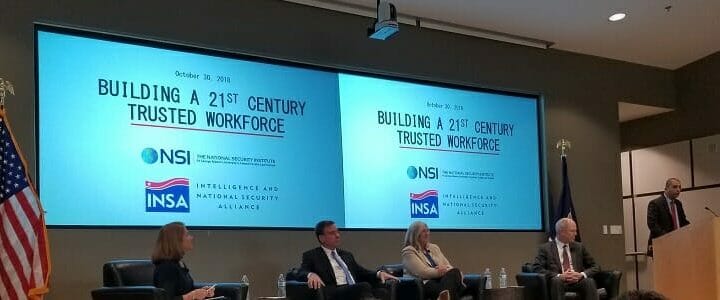While the security clearance backlog has been reduced to approximately 570,000 cases, the program still has a long way to go on its way toward reducing clearance processing times and modernizing the investigations process. This week Sen. Mark Warner reintroduced his bill, the Modernizing the Trusted Workforce for the 21st Century Act of 2019. The bill aims to improve clearance processing times and update the archaic technology used in the background investigations process. Prior to reintroducing the bill, Warner sent a letter to the White House and Office of the Director of National Intelligence, both admonishing a lack of forward progress and encouraging pending reform efforts.
“The current vetting process for security clearances and positions of trust is too complicated, takes too long, costs too much, and fails to capitalize on modern technology and processes. We are taking too many security risks and losing talented people who are not willing to endure a years-long process. Our current system is broken and needs a revolution,” the letter read.
The letter outlined the principles Warner is hoping to accomplish with his reintroduced legislation:
- Accountability
- Reform
- Oversight
- Innovation
And while much of the discussion about security clearances between the White House and Congress has been combative (including recently renewed calls to revoke security clearance for White House advisor Jared Kushner), the letter strokes a rare tone of bipartisanship at the end, noting progress the Executive Branch is attempting to make toward security clearance process improvement – specifically the transfer of the entire security clearance background mission to the Department of Defense, and ODNI’s implementation of the Trusted Workforce 2.0 initiative.
Defense Security Service officials have been hinting that a White House executive order on the transfer of security clearance processing authority is expected ‘any day now‘ – for approximately eight months. The executive order has been viewed by the relevant stakeholders. But just like many background investigations which seemed to get stalled on a desk somewhere, the executive order appears lost in approvals.
Warner likely hopes his reintroduced legislation will help move the process forward toward implementation.



